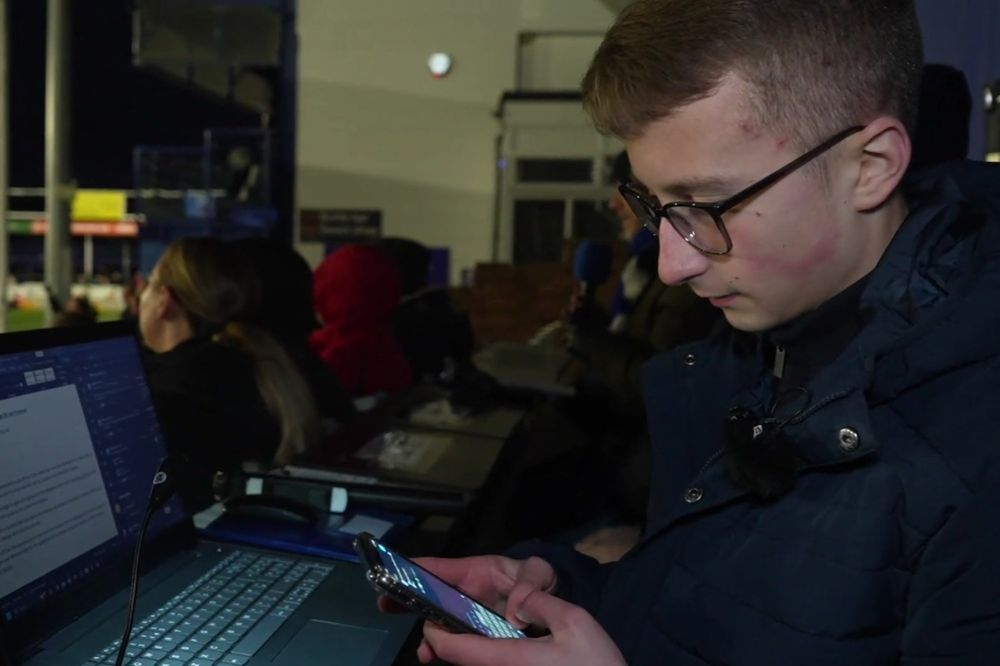BBC launches young reporter competition

The BBC has launched its search for the next winners of its Young Reporter competition.
Now in its sixth year, the annual storytelling competition invites young people aged 11-18 to submit original ideas.
The winners will have the opportunity to report on their stories on BBC programmes and platforms, reaching the BBC’s audiences.
The theme for this year’s competition is Me and My World.
Previous winners have reported on personal stories about themselves and issues that matter to and affect young people, such as the care system, AI, cyber-crime, music education, living with OCD and diversity in sport.
The most original and compelling story submissions will be put in front of a panel of presenters, reporters, senior editors and producers from across BBC content, such as Newsbeat and Newsround, as well as BBC Sport, Radio 5 Live and The One Show.
Young people can submit their story ideas as an individual or a group.
18 winning stories will be chosen and commissioned, including three national winners and 15 regional winners from across the UK, including a Welsh language winner.
Entries
The winners will work with BBC journalists, producers and programme makers to prepare their story for broadcast on BBC platforms.
The competition is open until 23:00 on Sunday 24 March 2024 and entrants can submit their stories via the entry form found here
Stories can also be uploaded in Welsh here and winners will be announced in June.
BBC Young Reporter is the BBC’s journalism and media project supporting young people to develop content creation skills.
The project is part of the BBC’s commitment to media literacy and supporting young people’s understanding and interest in broadcasting and the creative industries.
Every year, the initiative engages with thousands of 11 to 18-year-olds across the UK, working in partnership with schools, colleges and youth organisations.
A host of BBC journalists and presenters are joining this year’s judging panel to decide the competition winners, including Naga Munchetty, Alex Jones, Pria Rai, Ashley-John Baptiste, Nikki Fox and Ricky Boleto.
Variety
Naga said: “I’m delighted to be involved again. Young reporters bring a perspective that is much needed in news journalism. Everything that we can do to bring a variety of experiences to our audience can only enrich our knowledge and understanding of the world we live in.”
Pria says: “BBC Young Reporter Competition is such an exciting opportunity to share important stories. There’s so much to be said for hearing about an experience directly from someone affected; it can often help other people to talk about an issue too, and that has always been one of the most rewarding parts for me as a journalist.
“It’s a total honour to be a judge for the competition and I can’t wait to read this year’s entries.”
Last year’s winners include; Ben and Leo, who reported on the potential and risks of AI in the classroom for BBC Breakfast, Radio 5 Live, the BBC World Service ‘Tech Life’ podcast as well as the BBC News website.
Mia, who reported on how women’s football in Scotland has developed over the years for BBC Sport.
Elise, who produced a story on the future of brass bands for BBC Breakfast, Look East, Radio 5 Live, Radio Northampton and online.
Millie, who reported for BBC News online and The One Show about the vital support that dogs provide for some university students.
Jack, who produced a story on the community connection of grassroot football clubs for BBC Look East and BBC Essex.
From 5-6 March, the BBC Young Reporter Festival will take place in Glasgow and will involve hundreds of young people from Scotland, and others from across the UK virtually.
The event will include workshops covering media skills and masterclasses with the talent behind BBC The Social, BBC Scotland’s L.A.B and a range of BBC journalists.
Support our Nation today
For the price of a cup of coffee a month you can help us create an independent, not-for-profit, national news service for the people of Wales, by the people of Wales.






With cuts to local radio, where do the BBC think they will be employing the next generation of broadcast journalists?